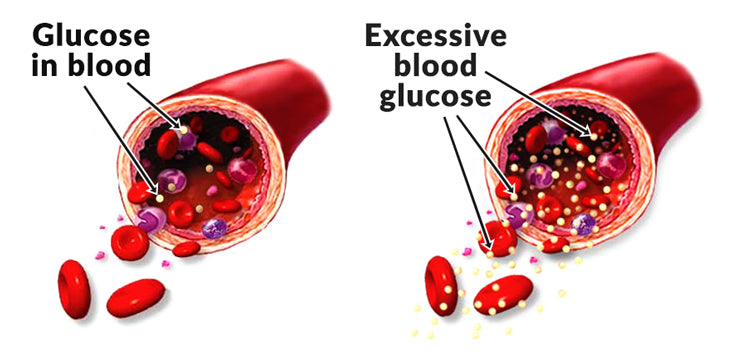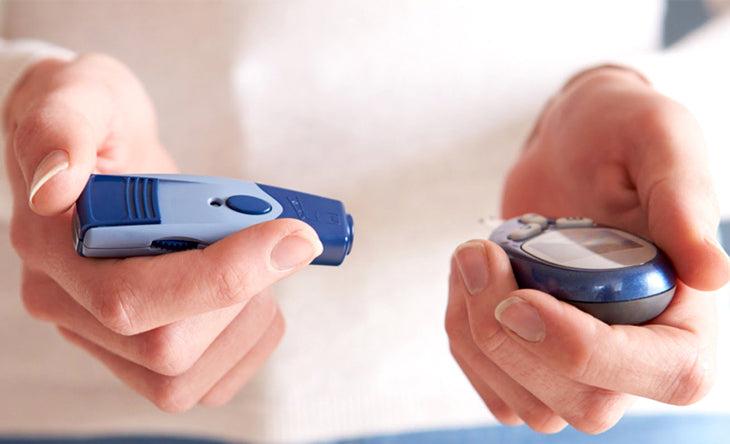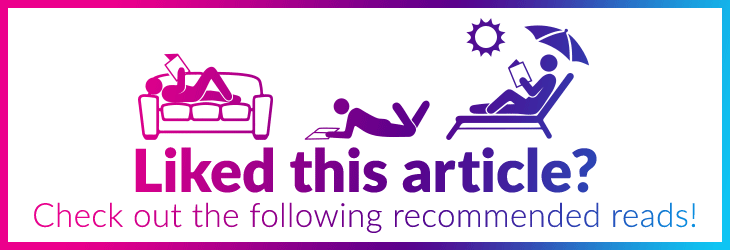Blood sugar levels and Paleo
Are you worried about your blood sugar levels? Heck, do you even know what they are, or what they can signal? Being in the Paleo world, and especially in the paleo dessert world, we hear an awful lot about blood sugar so we wanted to share some of what we’ve learned with you.

Let’s start with this: Sugar can do a lot of damage to the body when you've got it in excess, i.e. sodas, multiple cookies, cakes, or pies, or even that extra spoonful of coconut sugar in your morning coffee. C’mon, did you think we didn’t notice!
What kind of damage? Oh, long term chronic conditions like diabetes, obesity, and heart disease. You know, the usual killers in a sedentary culture. Need some quick facts? Here ya go:
Heart disease is the leading cause of death among US adults [Centers for Disease Control and Prevention], diabetes occurrence has risen by 12% over the past two decades [Nat. Health and Nutrition Examination Survey], and more than 20% of people across every state are classed as obese. In some states, that figure rises to over 35%! Zoinks, right?
All these health problems are preventable, and are usually the result of our out-of-control relationships with food, and especially that sweet substance called sugar.
Conventional medicine has reacted by controlling excess sugar in the body with pills, powders, lotions, and potions. Oh, and shots. Ouch.
A life on medication might temporarily ease the symptoms you face, but could also leave you suffering side effects that are worse than the original problem and staying on medication for the long term can be very expensive for you.
Ok, ok, enough of the problem. How can you avoid hopping on the medication train? The way we like to think of it is not by controlling the damage AFTER it’s done (once you’ve already eaten the sugar), but by avoiding the damage in the first place. Before we jump on our diet war-wagon, let’s talk about a great indicator of whether or not you’ve got a sugar problem: Your blood sugar levels.
How do I find what my blood sugar level is?
It can be easy or hard, expensive or cheap. You can ask your doctor for a blood or urine test, or you can test your blood sugar at home with a finger-prick kit. Finger-prick kits and testing strips are available online, and can be useful to anyone looking to monitor their health more effectively. Your blood glucose (glucose is a sugar, hence “blood sugar levels”) gives you insight into your current health, and can be useful to help identify problem foods.

Blood sugar levels: just what is 'normal', anyway?
So what counts as a 'normal' blood glucose level, and what is a safe range before taking action? The information out there is really confusing, and there are lots of different opinions on the ideal blood sugar level.
As a general rule, most doctors agree on an average range of 70-90mg/dl, or 90-125mg/dl following a meal. [Dr Davis] Some leave a greater tolerance, advising that 100-110mg/dl is not a big cause for concern. If your glucose levels are over 110mg/dl on waking or hit higher than 150mg/dl when you've eaten [American Diabetes Association] then it's time to seek help.
Of course, if you've just spent the day on a sugar binge, there's no need to panic at the odd spike in blood glucose levels. But if that raise is sustained over several days, you might have a problem on your hands.
What if you don’t want to measure this whole blood sugar levels (BLS) thing just yet? What kind of symptoms might you have?
With slow-acting conditions like Type 2 diabetes, it's not always obvious when the problem starts.
You might have noticed being more thirsty than you used to, or feeling extra tired, stressed, or anxious. Perhaps you're just aware that something isn't right.
Whatever first sounds the alarm for you, it's important to pay attention to how you feel and investigate anything unusual. Raised blood sugar can be extremely problematic in the long term, leaving you very unwell and seriously restricted in your diet. Caught early enough, high BSL can be stopped in its tracks through careful diet management, saving you a lot of illness and misery down the line.
Well, what if I don’t care about blood sugar?
You could die. Is that enough of a reason? Excess sugar essentially poisons your body. If there's too much sugar in your blood, it stops your body working properly. This is known as hyperglycemia, (hyper means “too much” and glycemia means “sugar”) and it occurs in patients diagnosed with diabetes or suffering the effects of it. Hyperglycemia can cause tiredness, irritability, confusion, blurred vision and increased thirst. Left untreated, this can become diabetic ketoacidosis – a life-threatening condition that needs immediate medical intervention.
Okay, but what if you're not diabetic? Surely if you can process sugar properly, then a little extra won't do any harm? Not exactly. You see, all that extra sugar in your system increases the chance of diabetes developing, so you're not really any safer just because you've not been told you have the condition.
Not only that, but refined sugar has a terrible impact on the body. It is highly addictive and creates a brief rush before causing your energy levels to crash; not fun. Refined sugar provides false energy, using up the body's reserves instead of drawing on nutrients in the food (in this case sugar).

Sugar can impact everything from your physical health to your mental wellbeing. It has been linked to everything from tooth decay to insomnia and from migraines to cardiac disease. If you're having health problems and struggling to find a cause, you might want to consider whether the sugar in your diet could be to blame. You might not even realize how much sugar you're consuming: hidden sugars are a real danger in the modern diet.
Where is all this extra sugar coming from?
If you are consuming too much sugar because you love sodas, sweet coffees and tasty cakes, you know where your problem lies right away. That ought to take care of 90% of you, however, even health-conscious eaters can find that their sugar levels reach scary heights. This is because so many processed foods and supermarket-bought ingredients contain refined sugars in one way or another.
From almond butter to hot chocolate, there's almost no recipe in mass-produced food that doesn't call for a little sweetening. Whether it’s corn syrup, high fructose corn syrup, agave, or coconut sugar, you’ll probably find some of the sneaky stuff almost everywhere!
If you've been told your sugar levels are high or if you're looking to make a change before that point arises, then it's time to consider major changes in your diet and lifestyle. Here’s where the Paleo diet comes into the spotlight.
So, how can Paleo make a difference?
Low in sugars and starches, high in protein and fats (don’t be scared, fats are actually OK!), Paleo takes your meals back to basics and removes most of the sugar along with the processed, hard to digest foods that are causing you problems.

Studies have shown that a Paleo diet can have a significant impact on your health, and send your blood sugar levels in the right direction. Following a Paleo diet over several weeks has been shown to reduce glucose tolerance [Lindeberg et. al., 2007] and decrease fasting blood sugars [Ryberg et. al., 2013] in control groups. Subjects also told researchers that they felt better overall, with improvements noted in sleep pattern, metabolism and weight as well as in sugar levels.
Does Paleo mean no more sweet treats?
Paleo doesn't mean doing without dessert, so don't panic! Avoiding sugar might sound like your worst nightmare if you're a fan of treats and desserts. Dieting is tough, and sometimes a little treat or two is what gets you through the week. With sugar, the poison is in the dose, and a little sweetness ain’t going to kill you.
There are lots of ways to get your fix through fresh, naturally sweet ingredients such as honey or fruit, you just have to get the dose right. One small dessert? OK. Ten small paleo desserts? That’s a problem.
Those sweet treats might cause a little spike in your blood sugar right after eating, but you won't get the same high and low effect refined sugar in large doses can cause. Balanced out with plenty of fats and proteins throughout a nutrient dense diet, one small treat will be just a blip on the radar, with no 'sugar crash' to worry about.
Once you understand what blood sugar levels are along with how to measure them, you realize that managing blood glucose levels doesn't need to mean missing out. Don't be afraid to experiment with Paleo Treats and find which desserts work best for you. Remember, don’t eat the whole pack at once; sharing is totally Paleo.



Hi Rodney, thanks for writing in. Are you asking if eating Paleo will lower your blood sugar to a deadly level? I wouldn’t think so, BUT: We’re not docs, you’re probably best off consulting with your doctor regarding what your blood sugar levels are/should be, and how eating a Paleo diet might affect those. Cheers,
Nik
What if you already have low blood sugar? Will this lower it to a deadly level?
Leave a comment